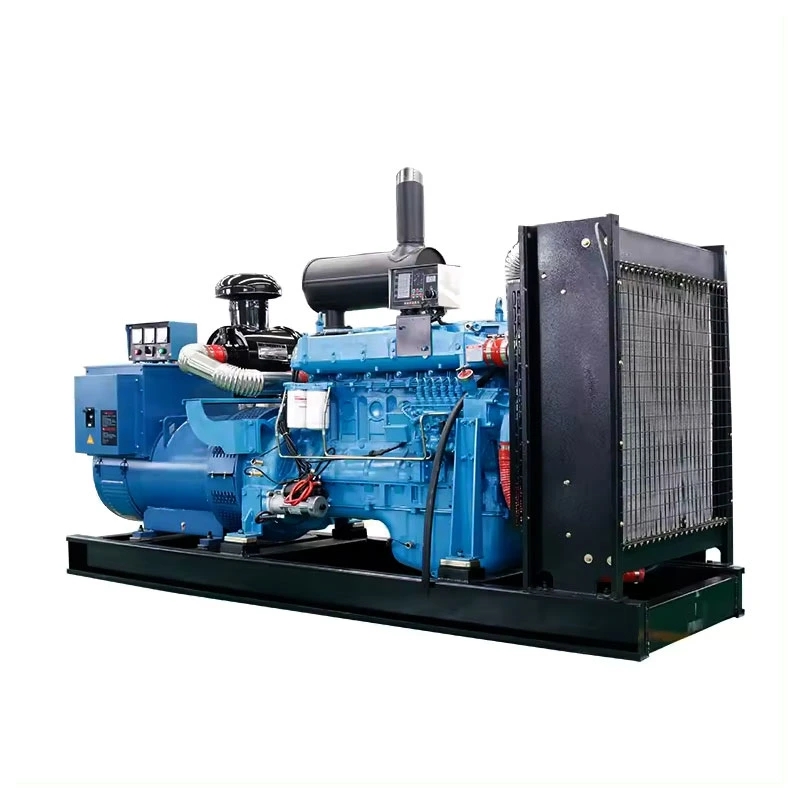Introduction
Diesel generators have long been a popular choice for providing base load power in a wide range of applications, from industrial settings to remote locations where access to the grid is limited. These reliable and efficient machines have the ability to provide continuous power for extended periods, making them ideal for use as a primary source of electricity in various scenarios. In this article, we will explore the key features, advantages, and considerations of using diesel generators for base load power.
Understanding Base Load Power

Base load power refers to the minimum amount of electricity required to meet the constant energy needs of a facility or system over an extended period. This steady demand for power forms the foundation of the electricity supply, with additional energy requirements met by peaking power sources during periods of higher demand. Diesel generators are well-suited for providing base load power due to their ability to operate continuously and deliver a consistent output of electricity.
Key Features of Diesel Generators
Diesel generators are designed to convert the chemical energy stored in diesel fuel into mechanical energy, which is then converted into electrical energy through an alternator. These generators consist of several essential components that work together to generate power efficiently and reliably. Some of the key features of diesel generators include:
1. Engine: The heart of a diesel generator is its combustion engine, which is responsible for converting the energy in diesel fuel into mechanical energy. Diesel engines are known for their durability, efficiency, and high torque output, making them well-suited for continuous operation.
2. Alternator: The alternator is responsible for converting the mechanical energy produced by the engine into electrical energy. It consists of a stator and rotor that generate an electromagnetic field, inducing a voltage in the windings of the stator to produce electricity.
3. Fuel System: Diesel generators require a fuel system to deliver the necessary amount of diesel fuel to the engine for combustion. The fuel system typically includes a fuel tank, fuel pump, fuel filter, and fuel injectors to ensure a consistent supply of fuel to the engine.
4. Cooling System: Diesel engines generate a significant amount of heat during operation, requiring an efficient cooling system to maintain optimal operating temperatures. Cooling systems in diesel generators typically consist of radiators, cooling fans, and coolant circulation systems to dissipate excess heat.
5. Control System: Modern diesel generators are equipped with advanced control systems that monitor and regulate various parameters, such as engine speed, fuel consumption, and electrical output. These systems ensure optimal performance, efficiency, and safety during operation.
Advantages of Using Diesel Generators for Base Load Power
1. Reliability: Diesel generators are renowned for their reliability and robustness, making them a dependable source of base load power. These machines can operate continuously for extended periods without significant downtime, ensuring a consistent supply of electricity.
2. Fuel Efficiency: Diesel engines are more fuel-efficient compared to gasoline engines, providing a higher energy output per unit of fuel consumed. This fuel efficiency translates to lower operating costs and reduced fuel consumption over the long term.
3. Longevity: Diesel generators are known for their longevity and durability, with many units capable of operating for tens of thousands of hours before requiring major maintenance or overhaul. Proper maintenance and regular servicing can further extend the lifespan of diesel generators.
4. High Torque Output: Diesel engines produce higher torque output compared to gasoline engines, making them ideal for applications that require a steady and reliable power supply. This high torque output ensures that diesel generators can handle sudden load changes and maintain stable operation.
5. Versatility: Diesel generators are versatile machines that can be used in a wide range of environments and applications, from industrial facilities to remote construction sites. Their portability, ease of installation, and ability to operate in harsh conditions make them a popular choice for base load power generation.
Considerations When Using Diesel Generators for Base Load Power
While diesel generators offer numerous advantages for providing base load power, there are several considerations to keep in mind when selecting and operating these machines:
1. Initial Cost: Diesel generators tend to have a higher initial cost compared to other power generation options, such as natural gas generators or solar panels. However, the long-term reliability and efficiency of diesel generators can offset the initial investment through reduced operating costs.
2. Fuel Storage: Diesel generators require on-site storage of diesel fuel, which should be stored in compliance with local regulations and safety standards. Adequate fuel storage capacity should be maintained to ensure uninterrupted operation during extended power outages.
3. Emissions: Diesel engines produce exhaust emissions that contain pollutants, such as nitrogen oxides (NOx) and particulate matter. To mitigate 300kw diesel generator for remote environmental projects of diesel generators, it is essential to select models that comply with emission regulations and implement proper exhaust gas treatment systems.
4. Maintenance Requirements: Diesel generators require regular maintenance to ensure optimal performance and longevity. Scheduled maintenance tasks, such as oil changes, filter replacements, and engine inspections, should be carried out according to the manufacturer's recommendations.
5. Noise Levels: Diesel generators can produce significant noise levels during operation, which may be a concern in residential or noise-sensitive areas. To minimize noise pollution, soundproof enclosures or barriers can be installed around the generator to reduce the transmission of noise to the surrounding environment.
Conclusion
Diesel generators are a reliable and efficient choice for providing base load power in a wide range of applications, offering numerous advantages such as reliability, fuel efficiency, and longevity. By understanding the key features, advantages, and considerations of using diesel generators for base load power, businesses and organizations can make informed decisions when selecting and operating these machines. With proper maintenance and adherence to best practices, diesel generators can serve as a dependable source of electricity for critical operations and facilities.
